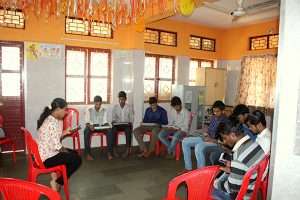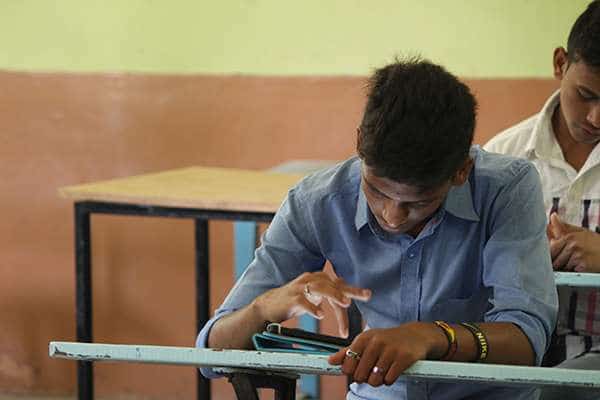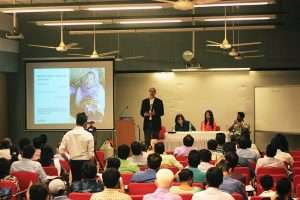We recently connected with Sharon Weir, the co-founder of 4th Wheel Social Impact (4WSI), about how SurveyCTO aligns with their work improving the way social programs in India are conceptualized, implemented, monitored, and evaluated. She shared details of a recent project in Bangalore that is assessing the impact of a life skills program for local youth, and shared why digital data collection is great for researchers AND respondents.
Tell us a little about the project for which 4th Wheel Social Impact is using SurveyCTO.
4WSI has been commissioned by a renowned NGO in Bangalore to assess the impact of a life skills program in terms of Quality of Life (QoL) for youth aged between 18 and 22 years.
Program alumni (the study group) are compared to a control group (those who did not undergo the program) of the same age. Both groups undertake a self-administered survey to provide inputs on their quality of life as perceived by them. 100 students of both the study and control group have been included in the study.
“One of the biggest advantages [of technology-based data collection] is making research more interesting and engaging for respondents, who many times express disinterest in participating in conventional research.”
The research study makes use of the World Health Organization (WHO) Quality of Life (QOL) tool. The WHOQOL-100 tool consists of 100 questions organized into six domains that covers aspects from health to environment, personal beliefs, and social relationships. To ensure good quality data, 4WSI used SurveyCTO installed on tablets to capture responses.
Where are you in the project now?
We have completed the data collection phase and are in the process of analyzing the data. We collected around 130 data points from more than 230 respondents and are currently analyzing the data with the help of SPSS and the general analysis tools offered by SurveyCTO.
What are some of the innovative ways you’re using SurveyCTO?
We have observed the benefits attached to technology-based data collection on several levels. One of the biggest advantages is making research more interesting and engaging for respondents, who many times express disinterest in participating in conventional research. Adding pictures or voice and different ways to garner responses helps to encourage respondents to participate.
“We urge organizations to move beyond paper-based data collection to collect better data, faster and more easily, and we highly recommend SurveyCTO.”
Other important considerations for good research are quality control and tracking the achievements and work of the research team for large research studies, spread across different geographies. The GIS feature helps to overcome these monitoring challenges and to track performance of the research team.
Is there anything else you’d like to share about the project or survey design in general? Any advice for others?
 Using tablets as opposed to paper surveys has been well-received by the study population and makes the self-administered questionnaire more interesting and engaging. We were able to get young people together in large groups to participate in the study, which would not have been possible with a one-to-one survey method. We were able to access the data on any given day during the data collection phase, which is impossible if conventional data collection methods are used, owing to data entry and computation.
Using tablets as opposed to paper surveys has been well-received by the study population and makes the self-administered questionnaire more interesting and engaging. We were able to get young people together in large groups to participate in the study, which would not have been possible with a one-to-one survey method. We were able to access the data on any given day during the data collection phase, which is impossible if conventional data collection methods are used, owing to data entry and computation.
It is important to involve respondents by using fresh and creative techniques for research. SurveyCTO enables this through the features it currently offers. We urge organizations to move beyond paper-based data collection to collect better data, faster and more easily, and we highly recommend SurveyCTO.
Photos courtesy of 4th Wheel Social Impact




